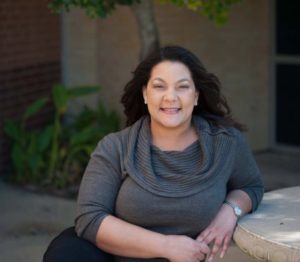
Advent is a season of preparation for Christmas and extends over a period of four weeks. Unlike the physical preparations for Christmas – decorating our homes, making gift lists, baking, etc. – the preparations of Advent are primarily internal. It is the preparation of our spirits, a turning of hearts and minds to the truth summarized in John 3:16 (but woven throughout Scripture) – the love of God for us. Four themes are emphasized during Advent: hope, peace, joy, and love. This issue we will explore the theme of peace, consider its relevance to our well-being, and explore how to weave peace into our preparations for and celebration of the birth of our Savior, Jesus Christ.
The Christmas season is often characterized by early bird sales, gifts to package and mail, long lines, and even longer gift lists to fulfill. The season is a time of revelry for some. For others, it can be a time of increased worry, stress, and anxiety. For many, the Christmas season reminds them of family conflict, pressure to meet the expectations of others, and resources that don’t seem to stretch quite far enough. There is so much on the mind and the frantic pace of preparations may seem conducive to everything except peace.
While the bright lights and carols seem to move everyone else into the Christmas spirit, some can feel even more emotionally stretched and drained. In these moments, our focus can become narrowed, our energy can be sapped, and our reserve of emotional resiliency can shrink as our peace slowly gets sacrificed on the altar of our holiday worries.
“Prince of Peace” is one of the names given to Jesus, the Child who was born and the Son who was given (Isaiah 9:6). In the midst of the hustle and bustle, the Prince of Peace calls us to Himself. If we heed His call, we can receive His blessed assurance given through the prophet Isaiah: “You will keep in perfect and constant peace the one whose mind is steadfast [that is, committed and focused on You – in both inclination and character]. Because he trusts and takes refuge in You [with hope and confident expectation]” (Isaiah 26:3, AMP). This is the key to experiencing peace in the midst of the hustle and bustle – keeping our mind, “committed and focused” on God. How can we do this?
Make the decision to be at peace.
Some believe peace to be an emotional experience that is elusive and reserved for the few special ones, not those of us who experience the stress of our daily lives. That couldn’t be further from the truth of His word. We are reminded, “Do not be anxious or worried about anything, but in everything [every circumstance and situation] by prayer and petition with thanksgiving, continue to make your [specific] requests known to God. The peace of God [that peace which] reassures the heart, [that peace which] transcends all understanding, [that peace which] stands guard over your hearts and your minds in Christ Jesus [is yours]” (Philippians 4:6-7, AMP). Peace is for every one of us and is accessible through our consistent practice of two things: thanksgiving (gratitude) and making our requests known to God (prayer).
We are told that if we do these two things, we will have access to peace that covers all situations, calms our hearts, and guards our hearts and minds. Even better, this peace that He gives, this gift of peace, is different from the peace that the world gives. It is not fragile or dependent on circumstances. Our experience of His peace may vary but the quality of His peace does not change. It endures because it is based on the Prince of Peace, not our merit or circumstances. Make the decision to access and receive the peace that is readily available to you, in every stressful moment, in every anxious experience… simply find something to thank Him for and ask Him for what you need.
Prioritize activities that prioritize Christ Jesus.
The Christmas season can be full of busy activities but too often, we and those in our immediate circle become the focus of these festive moments. How can we shift the focus from ourselves to Christ Jesus, the One whose birth we are supposed to be celebrating? How can we prioritize activities that prioritize Him? First, we must identify the activities that prioritize Him and focus on Him as the “main event.”
Worship and reading Scripture passages are two such activities. Worship shifts our focus from everything else to Him. There is a place for the classic Christmas songs that may elicit warm memories and emotions, for example, “The Christmas Song” or “Have Yourself a Merry Little Christmas”. These songs, however, speak of Santa and reindeer, chestnuts roasting and friends coming together, but include nothing of the Savior, unlike songs such as, “Oh Holy Night” or “Joy to the world.” Consider creating a playlist of worship songs that focus on Him and be intentional about worshipping Him through music.
In addition, consider reading Advent Scripture passages out loud. Any search engine using the words, “Advent Scriptures” is one way to find these verses. Or perhaps you already have a favorite passage of Scripture. Either way, consider reading the verse(s) out loud, listening as if you are hearing them for the first time, then giving thanks to God for the truths in them and praying with a focus on the themes highlighted.
Treat rest as a non-negotiable.
It is much easier to become irritated and frustrated when we are tired and not adequately rested. Remember how our parents knew we needed a nap when we were young? That’s right, we had meltdowns, even in public places. As adults, our needs for rest remain just as important as they were back then, only now we have gotten far more sophisticated at masking our fatigue with elaborate attempts at covering our eroding sense of peace.
We occupy ourselves with long to-do lists, convince ourselves that we have no time to rest, and resist His urges to let the world go on spinning without us for a period while we find respite in His sweet peace. Just as He called His disciples to rest (Mark 6:30-32) He does the same to us. And the longer we resist His rest, the more irritable, cranky, short-tempered, and emotional we become. This holiday season, let’s remember one of the primary reasons for the Advent season. As stated by Rev. Dr. Mark D. Roberts,
“Christians prepare for celebrating the birth of Jesus by remembering the longing of the Jews for a Messiah. In Advent, we’re reminded of how much we ourselves also need a Savior, and we look forward to our Savior’s second coming even as we prepare to celebrate his first coming at Christmas. The word ‘Advent’ comes from the Latin word adventus, which means ‘coming’ or ‘visit.’ In the season with this name, we keep in mind both ‘advents’ of Christ, the first in Bethlehem and the second yet to come.”
The holiday season can consume our energy and focus, and can pull us into the dangerous illusion that the season is about the gifts, rather than Jesus, the Gift (John 3:16). This season, lean into Him, remember that you need the Savior, and intentionally schedule periods of rest and time away with Him. Let us focus our attention on Him and experience His peace during this Christmas season. Then we will feel ready and capable of moving into the new season He grants with the start of the New Year. We can’t wait to begin that with you soon! Until then, as always, be kind to yourself, remember that changing habits takes time, and celebrate small successes as you go. We are cheering you on to Wellness His Way!
Jeanette Madkins, PhD, ABPP | Esther W. Wright, PhD, ABPP
 Dr. Jeanette Madkins is a licensed and Board Certified counseling psychologist. In her private practice, Dr. Madkins specializes in issues that affect the hearts and minds of women, including anxiety, depression, maternal mental health/perinatal anxiety and depression, diversity concerns, relationship issues, infertility, infidelity survivorship, trauma survivorship, pregnancy loss, and post-abortion counseling. With over 15 years of psychotherapy experience, she uses a collaborative and integrative approach to support women as they regain their sense of stability and work towards wellness and healing. She also teaches, provides professional training seminars and supervision for other clinicians, and writes. For more information about Dr. Madkins and her practice, please see www.drjmadkins.com.
Dr. Jeanette Madkins is a licensed and Board Certified counseling psychologist. In her private practice, Dr. Madkins specializes in issues that affect the hearts and minds of women, including anxiety, depression, maternal mental health/perinatal anxiety and depression, diversity concerns, relationship issues, infertility, infidelity survivorship, trauma survivorship, pregnancy loss, and post-abortion counseling. With over 15 years of psychotherapy experience, she uses a collaborative and integrative approach to support women as they regain their sense of stability and work towards wellness and healing. She also teaches, provides professional training seminars and supervision for other clinicians, and writes. For more information about Dr. Madkins and her practice, please see www.drjmadkins.com.
 Dr. Esther W. Wright is a licensed and Board Certified counseling psychologist. For over 14 years, she has worked with college students in a university counseling center. Her areas of special interest are therapeutic writing, spirituality, multiculturalism, wellness, relationship concerns and women’s issues. Dr. Wright utilizes an integrative orientation in her work with emphases on culturally sensitive cognitive behavioral, interpersonal, and psychodynamic perspectives. Dr. Wright is also a published poet and author, and believes firmly in the transformative and healing power of words.
Dr. Esther W. Wright is a licensed and Board Certified counseling psychologist. For over 14 years, she has worked with college students in a university counseling center. Her areas of special interest are therapeutic writing, spirituality, multiculturalism, wellness, relationship concerns and women’s issues. Dr. Wright utilizes an integrative orientation in her work with emphases on culturally sensitive cognitive behavioral, interpersonal, and psychodynamic perspectives. Dr. Wright is also a published poet and author, and believes firmly in the transformative and healing power of words.
You must be logged in to post a comment.